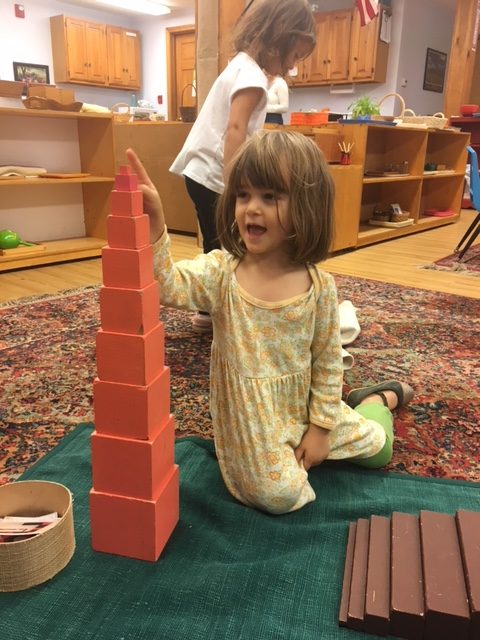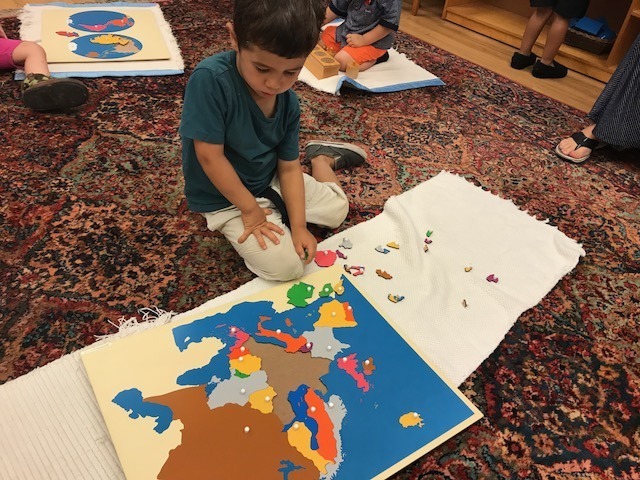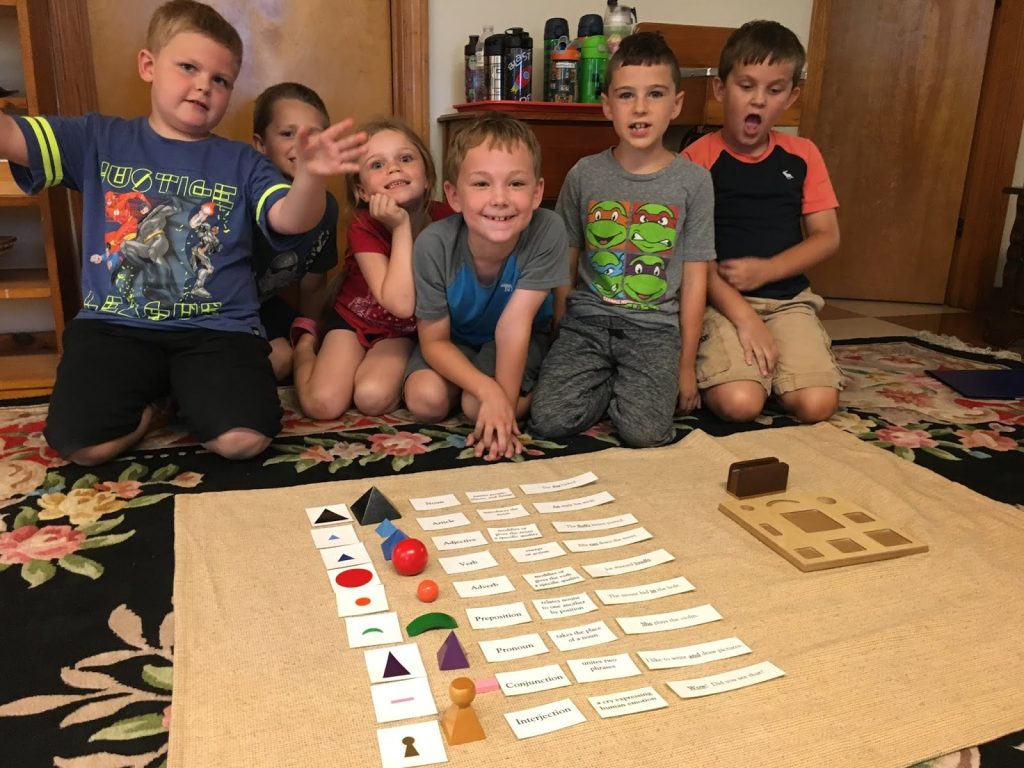What is Montessori?
“The child gives us a beautiful lesson – that in order to form and maintain our intelligence, we must use our hands. ”
Dr. Maria Montessori’s philosophy includes the belief that social adjustment, though necessary for learning in a classroom, is not the purpose of education. Patterns of concentration, perseverance, resilience, and thoroughness established in early childhood produce confident, competent learning in later years. At the heart of it all is the idea that learning should be joyful and that “work” should be interesting and fun.

“The secret of good teaching is to regard the child’s intelligence as fertile field in which seeds may be sown, to grow under the heat of flaming imagination. Our aim is not only to make the child understand, and still less to force him to memorize, but so to touch his imagination as to enthuse him to his innermost core. We do not want complacent pupils, but eager ones. We seek to sow life in the child rather than theories, to help him in his growth, mental and emotional as well as physical and for that we must offer grand and lofty ideas to the human mind.”
— Maria Montessori
Characteristics of Montessori Education
1) Respect for the Child
2) Respect for One Another
3) Cultural Diversity
4) Universal Adaptability
5) Cosmic Education
6) Individuality
7) Independence
8) Freedom of Choice
9) Hands-on Learning
10) Love of Work
11) Care of One’s Self
12) Self-Discipline
13) Spontaneous Concentration
14) Grace and Courtesy
15) Intrinsic Motivation
16) Initiative
17) Prepared Environment
18) Didactic Materials
19) Integrated Curriculum
20) Sense of Order
21) Heterogeneous Grouping
22) Refinement of the Senses
23) Movement
24) Auto Education
25) Teacher as Facilitator

What makes Montessori different?
Montessori Program
- Individualized instruction so students may excel at their separate pace
- Universal values (honesty, respect, compassion, fairness, etc.) are an integral part to the classroom to create a community
- Independent learning and research to foster life-long learners
- Thinking skills are nurtured and emphasis is placed on thoroughly understanding concepts
- Multi-age Classes
- Children encouraged to choose work from their own interests and abilities
Traditional Programs
- Large group lessons--everyone at the same pace
- Values not emphasized
- Teacher-centered learning
- Rote learning and memorization
- Same-age Classes
- Teacher chooses work and curriculum

Helpful Links
International Montessori Foundation
Fabulous articles about the Montessori method for parents and what to expect in the classroom
International Montessori Index
A reference for everything you would want to know about Montessori education
Seacoast Center Elementary Montessori Teacher Training
New England Montessori Teacher Education Center (Preschool)


